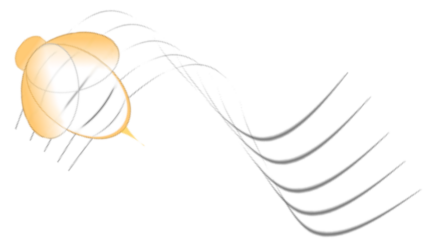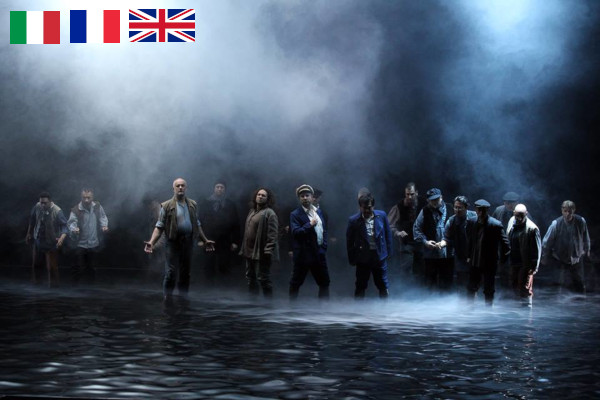Wagner in Wellingtons
by Suzanne Daumann
A production unique and diverting frames like a painting a good version of Wagner's opera.
Rennes, on May 9, 2019 - For their last show of the season the Rennes Opera has taken up a production from Hagen, Germany, of Richard Wagner’s Flying Dutchman. Staged by a duo of sisters, Beverly and Rebecca Blankenship, it is quite unique and diverting.
The storyline revolves around a captain and a curse, the Dutchman is condemned to sail the seven seas until a woman’s faithfulness relieves him. During a storm, he meets his colleague, Captain Daland, who promises his daughter to him, in exchange for the riches he has amassed over the centuries. The captain’s daughter, Senta, his engaged to Erik, but she’s also vaguely and dreamily in love with a stranger whose portrait hangs on a wall in her home. Her father comes home and announces having found her a husband, and - lo and behold! - it’s none other but the man on the portrait. They fall instantly for each other and the happy ending seems imminent. The Dutchman however doesn’t want Senta do share his fate and decides to leave on the next storm. She throws herself into the sea after him, and they are both saved - dead but on their way to heaven, one must assume.
A most romantic story and set to music most romantically by a young Wagner, this opera can handle a somewhat original staging: the stage is framed like a painting and the frame shows the count of the Dutchman’s victims, women that perished for his love and their own infidelity - honni soit who thinks of Leporello here and his catalogue. The stage is a painting, and a pool. Indeed, the singers have to splash through knee-deep water all along the piece. Uncomfortable as it might look, the water does give them a supplementary medium of expression: sending up fountains of water certainly increases the drama of say, someone walking angrily away. It doesn’t take much more to make visible ships, storms and safe ground: ropes for ships and sailors, a capstan that Senta’s friends turn instead of spinning wool, red and blue lit smoke for storms and high seas. The excellent singers and their great stage play do the rest. Bass-baritone Almas Svilpa, with a beautiful warm voice and impressive stage presence is a very credible Dutchman, between despair and tenderness. Martina Welschenbach, soprano, is Senta. Her voice is clear, large, generous, the intonation perfect; she plays this strong woman with remarkable abandon. The Daland of this production is a bit of a buffoon, and Patrick Simper does him justice, his amazing bass voice almost too big for the part. Samuel Sakker is a creditable Erik, Yu Shao sings the helmsman’s song with the right dose of nostalgia. A pity that Marie doesn’t have more to say, we’d have loved to hear more of Doris Lamprecht’s lovely voice. Rudolph Piehlmayer conducts the Orchestre Symphonique de Bretagne with energy and humour, and the choirs, Gildas Pungier’s Ensemble Vocal Mélisme(s) and the Choir of Angers Nantes Opéra under Xavier Ribes are sublime, as always.
A romantic evening, amazing and amusing, that we leave thinking about the symbolism of all this, women saving men, men saving women, water, ships and the seven seas, and with the sailors’ chorus humming in our brains.
Thank you, Opéra de Rennes!
NB: On June 13, the show will be broadcast on a giant screen, on Place de la Mairie, Rennes, and in many other places in Brittany.


